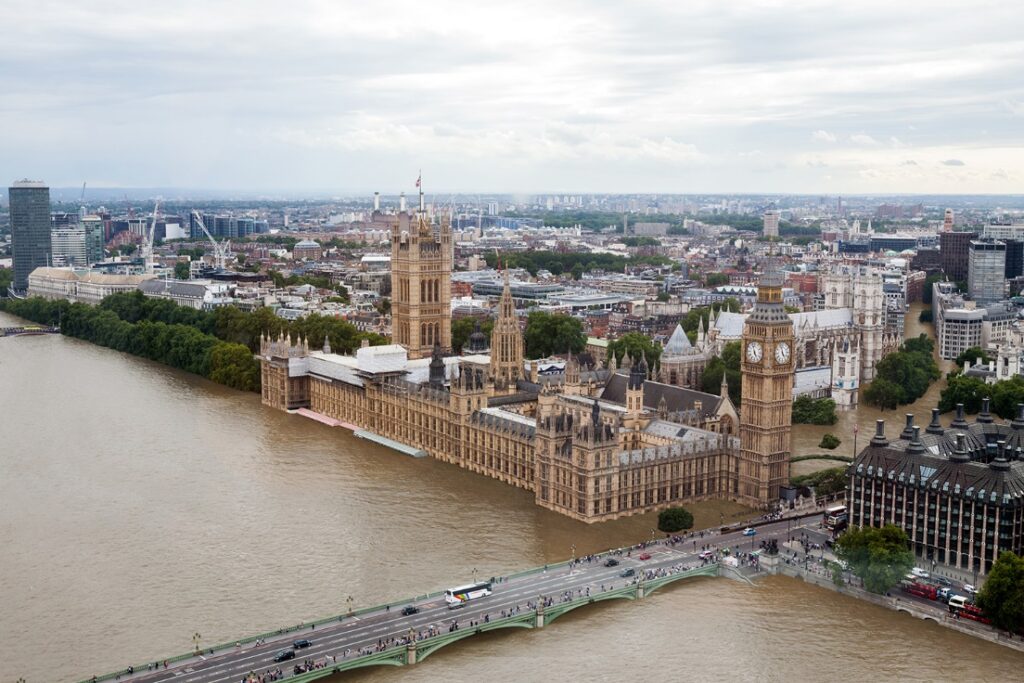The government’s plans to improve the UK’s air quality include proposals to require local authorities to provide “active support” for ultra-low emission vehicles (ULEVs), including increased charging infrastructure, and impact business procurement of backup power and plant.
However the Clean Air framework, published on Friday (5 May) following a series of court cases against the government, has been branded weak and incoherent by critics, lacking ambition and credibility while “passing the buck” to local authorities.
The government’s plans include few new policies aside from wider use of Clean Air Zones (CAZs), which are defined as areas where targeted action is taken to improve air quality. Resources are prioritised and coordinated in order to deliver improved health benefits and support economic growth, while also accelerating the transition to a low emission economy.
According to the government’s documents, local authorities will now “be expected to develop new and creative solutions to reduce emissions as quickly as possible, while avoiding undue impact on the motorist”.
Due to the devolved nature of the proposal, the government has shied away from stating a preference towards chargeable CAZs, in which the most polluting vehicles are required to pay for use of the area. Instead, councils are to exhaust all other options before introducing CAZ charging, with minimum standards instead set for diesel (Euro 6) and petrol (Euro 4) vehicles.
However, councils will be asked to design CAZs to deliver the cleanest possible fleet, which may include ensuring provision of charging points for all forms of electric vehicles in a variety of locations. The government also suggests implementing more preferential treatment of ULEVs such as designated parking and lower fees, although many councils have already taken these steps.
Businesses will also be encouraged to commit to using only the cleanest vehicles, while large taxi firms and private hire users should also be urged to do the same. Local authorities themselves have been asked to go beyond the minimum of CAZ standards for ULEVs.
The plans also touch on wider business procurement within CAZs, with those requiring back-up power supplies to be encouraged to source plant with low emissions or zero emission alternatives.
Due to these modest proposals, it is unclear if the the Clean Air framework in its current form will remain as ClientEarth, the environmental law firm behind the numerous legal challenges against the government on its air quality plans, is said to be preparing a fresh case.
ClientEarth CEO James Thornton said: “The court ordered the government to take this public health issue seriously and while the government says that pollution is the largest environmental risk to public health, we will still be faced with illegal air quality for years to come under these proposals.”
“We fail to see how the non-charging clean air zones, proposed by the government, will be effective if they don’t persuade motorists to stay out of those areas. The government seems to be passing the buck to local authorities rather than taking responsibility for this public health emergency.
“The government has also failed to commit to a diesel scrappage scheme and this is a crucial element of the range of measures needed to persuade motorists to move to cleaner vehicles.”
Thornton’s views have been reflected by many other commentators and stakeholders, particularly in London where 43% of the UK’s roads that exceed the EU legal nitrogen dioxide limit are located.
The London Assembly said in its response that the plan needed “considerable revision” and “lacks credibility”, while the body representing all 33 local authorities in the capital, London Councils, criticised the plan for its “reliance” on local government and the lack of national-level policies.
Councillor Julian Bell, chair of London Councils’ transport and environment committee, said: “The government’s lack of consideration of what solutions it can contribute at a national level means that Londoners will be exposed to a further decade of poor air quality, resulting in unnecessary deaths.”
The wider green sector has also challenged the government to do better. Matthew Trevaskis, head of electric vehicles at the Renewable Energy Association, said: “This plan is disappointing, it essentially represents a roundup of existing policies and lays out woolly language around how local authorities should encourage better behaviour, such as Clean Air Zones.
“The terms need to be beefed-up, rather than simply allowing local authorities to charge polluting vehicles in urban areas they should be allowed to ban them if pollution rates are too high.”





